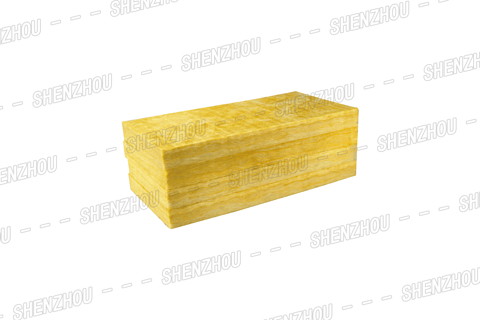
Which one has better sound insulation effect, glass wool or rock wool
6/12/20245 min read

In the field of sound insulation materials, glass wool and rock wool are two common choices, each with unique characteristics and advantages. However, in terms of sound insulation, which one is more outstanding? This article will explore in detail the sound insulation performance of glass wool and rock wool, and compare their advantages and disadvantages.
Categories
Popular
Applications of Glass Wool Board:
Interior Wall Compartments:
Enhances the functionality and aesthetics of interior spaces.
Ceiling Systems:
Provides effective insulation for ceilings, contributing to energy efficiency.
Insulation of Iron Sheet Air Ducts or Bellows:
Ideal for insulating ductwork, ensuring thermal efficiency.
Sound Absorption and Noise Reduction:
Reduces noise levels in machine rooms, creating a quieter working environment.
Exterior Wall Insulation:
Offers insulation for residential building exteriors, contributing to energy savings.
Glass Wool Insulation





Firstly, let's understand the sound insulation performance of glass wool. Glass wool has a wide range of applications in the field of sound insulation due to its unique fiber structure and pore characteristics. The porous structure formed by its fibers can absorb and dissipate sound waves, effectively reducing the decibel value of noise. This material performs particularly well in low-frequency and intermediate frequency sound insulation, and is therefore widely used in some mechanical equipment, generator rooms, and other places. However, glass wool has a relatively weak sound insulation effect on high-frequency sound waves, which is an obvious shortcoming.
Next, let's take a look at the sound insulation performance of rock wool. The porous structure of rock wool board also gives it the ability to absorb sound and reduce noise. This material can effectively absorb and dissipate sound waves, thereby reducing noise levels. Compared with glass wool, rock wool has more advantages in fire resistance, moisture and mold resistance, and environmental friendliness. Rock wool belongs to inorganic materials and has a high fire resistance rating, which can effectively prevent the spread of fires. At the same time, its hydrophobicity gives it good moisture and mold resistance, making it suitable for humid environments. In addition, rock wool does not use any organic solvents in the production process and is a green and environmentally friendly building material.
In practical applications, rock wool panels are widely used in walls, ceilings, pipelines, and soundproof doors. Through reasonable installation and use, rock wool boards can effectively reduce noise and improve the quality of living and use in buildings. Especially in terms of wall sound insulation, rock wool board can effectively reduce indoor noise and improve living comfort.
When comparing the sound insulation effects of glass wool and rock wool, we found that both have a certain effect on sound absorption and noise reduction. However, the specific effect of which material is better still needs to be determined based on actual application scenarios and requirements. In places with high requirements for low-frequency and intermediate frequency sound insulation, glass wool may be a more suitable choice. In some scenarios where fire, moisture, and environmental performance need to be considered simultaneously, rock wool may have more advantages.
In addition, we should also note that the sound insulation effect is not only determined by the material itself, but also by factors such as the thickness, density, and installation method of the material. Therefore, when selecting sound insulation materials, we need to consider various factors comprehensively to achieve the best sound insulation effect.
In summary, glass wool and rock wool each have their own advantages and disadvantages in terms of sound insulation performance. Glass wool performs better in low-frequency and mid frequency sound insulation, while rock wool has advantages in fire prevention, moisture prevention, and environmental performance. In practical applications, we should choose appropriate sound insulation materials based on specific needs and scenarios, and pay attention to the influence of factors such as material thickness, density, and installation method on the sound insulation effect. Through scientific and rational selection and use, we can create a quiet and comfortable environment for buildings.

Why Choose SHENZHOU Glass Wool Board?
SHENZHOU® Glass Wool Board not only meets the essential requirements of thermal insulation but also excels in sound absorption and noise reduction. Its adaptability to various settings, coupled with the convenience of construction and installation, positions it as a leading choice for architects, builders, and contractors.
In conclusion, the broad application prospects of SHENZHOU® Glass Wool Board make it a comprehensive solution for enhancing comfort, energy efficiency, and acoustic performance across diverse projects. Choose SHENZHOU® for insulation solutions that go beyond expectations.










About Us
Click the button below to get more information about us
Newsletter
Click to subscribe for more information
Follow Us
Contact Us
Address
Dacheng town, Langfang City, Hebei province, China
Phone
+86 185 03165 626


